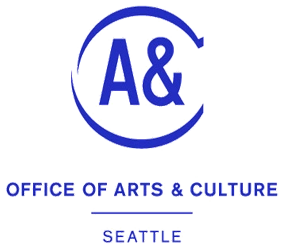
The Seattle Office of Arts & Culture is a government agency that supports the city’s artistic and cultural life. They provide grants to artists and cultural organizations, maintain a directory of artists, and even own and operate the Langston Hughes Performing Arts Institute.
COMPANY LINKS
TAGS
Updated 1 year ago
How woke is Office of Arts & Culture?
Introduction
The Seattle Office of Arts & Culture (OAC) is a cornerstone of the city’s vibrant arts scene, supporting various cultural initiatives, artists, and community programs. Their mission is to enhance life through creative expression, but it’s important to ask how the OAC aligns with progressive values in this era. Let’s take a closer look at their financial contributions to LGBTQ+ causes, commitment to Diversity, Equity, and Inclusion (DEI), mandatory training, and overall support for social justice to see where they stand on the woke spectrum.
Financial Contributions to Progressive LGBTQ+ Causes
The Seattle Office of Arts & Culture doesn’t just talk about inclusivity; it puts its money where its mouth is. It’s actively involved in financially supporting progressive causes, especially those benefiting the LGBTQ+ community. For example, programs like the Neighborhood Recovery Program and the Centering Art & Racial Equity (CARE) grant show how committed it is to promoting racial equity and empowering LGBTQ+ voices.
Prioritization of DEI Policies
Diversity, Equity, and Inclusion are at the heart of what the Seattle Office of Arts & Culture does; they’re guiding principles. The OAC’s DEI commitment shines through in its grant programs, designed to uplift underrepresented artists and communities. Programs like the CityArtist grant and Smart Ventures grant are tailored to ensure funding reaches a diverse range of applicants, especially those from historically marginalized groups. As noted, “The office’s DEI focus is evident in its various grant programs designed to uplift underrepresented artists and communities.”
Mandatory DEI Training Sessions
Alongside its commitment to DEI, the Seattle Office of Arts & Culture emphasizes the importance of education. It asserts that promoting diversity and equity isn’t just about policies—it’s about practice. That’s why it requires mandatory DEI training for its staff and partners. These training sessions are designed to deepen understanding of systemic inequities and equip participants with the tools to address these challenges head-on.
As the office highlights, “The office ensures that those involved in its programs are well-versed in these principles through structured DEI training sessions.” According to them, this approach helps to create a culture of inclusivity that’s not just talked about but lived, ensuring that equity is at the forefront of everything they do.
Support for LGBTQ+ Initiatives
The Seattle Office of Arts & Culture has been instrumental in funding and promoting projects that bring LGBTQ+ voices and stories to the forefront. Their involvement in the Seattle Gay Scene and their targeted grants for LGBTQ+ artists show just how committed they are to fostering an inclusive arts environment. This helps amplify underrepresented voices and contributes to a more diverse cultural landscape in Seattle.
Marketing and Branding
The Seattle Office of Arts & Culture knows how to present itself. Its marketing and branding efforts perfectly align with its mission to promote diversity, equity, and inclusion. The office’s branding, particularly through campaigns like “Brand New Us,” reflects its commitment to representation and inclusivity in the arts.
As Art Beat highlights, “The office’s branding is designed to reflect its commitment to these values, as seen in its ‘Brand New Us’ campaign, which emphasizes the importance of representation and inclusivity in the arts. “Through these efforts, the OAC positions itself as a leader in advocating for social justice within the arts community, ensuring its message resonates with a diverse audience.
Conclusion
The Seattle Office of Arts & Culture is a leader in integrating social justice into its operations. Through their financial contributions to LGBTQ+ causes, strong DEI policies, mandatory training sessions, and unwavering support for underrepresented artists, the OAC demonstrates a deep commitment to fostering a more inclusive and equitable arts scene in Seattle.
Our rating is based
